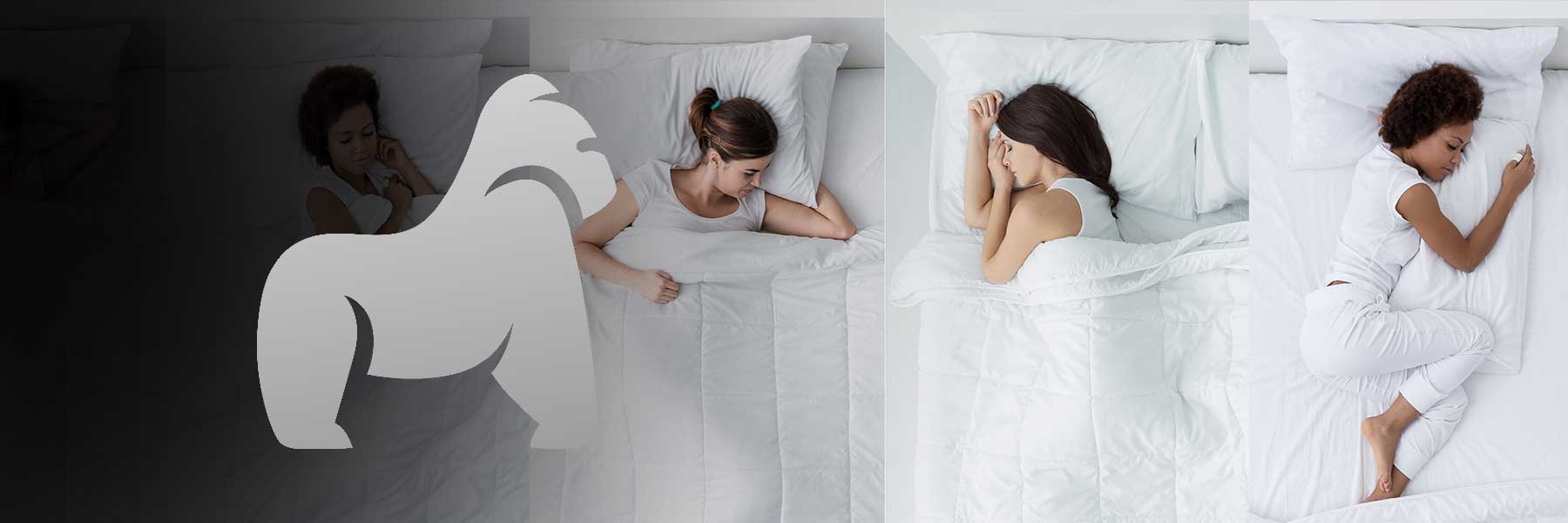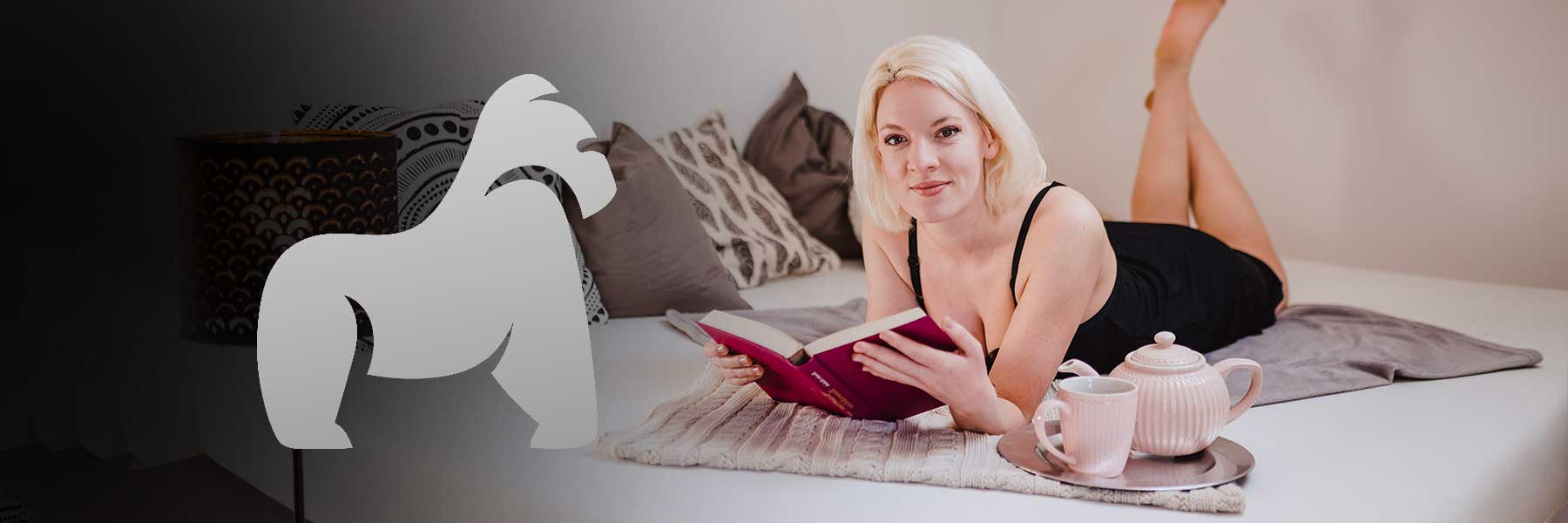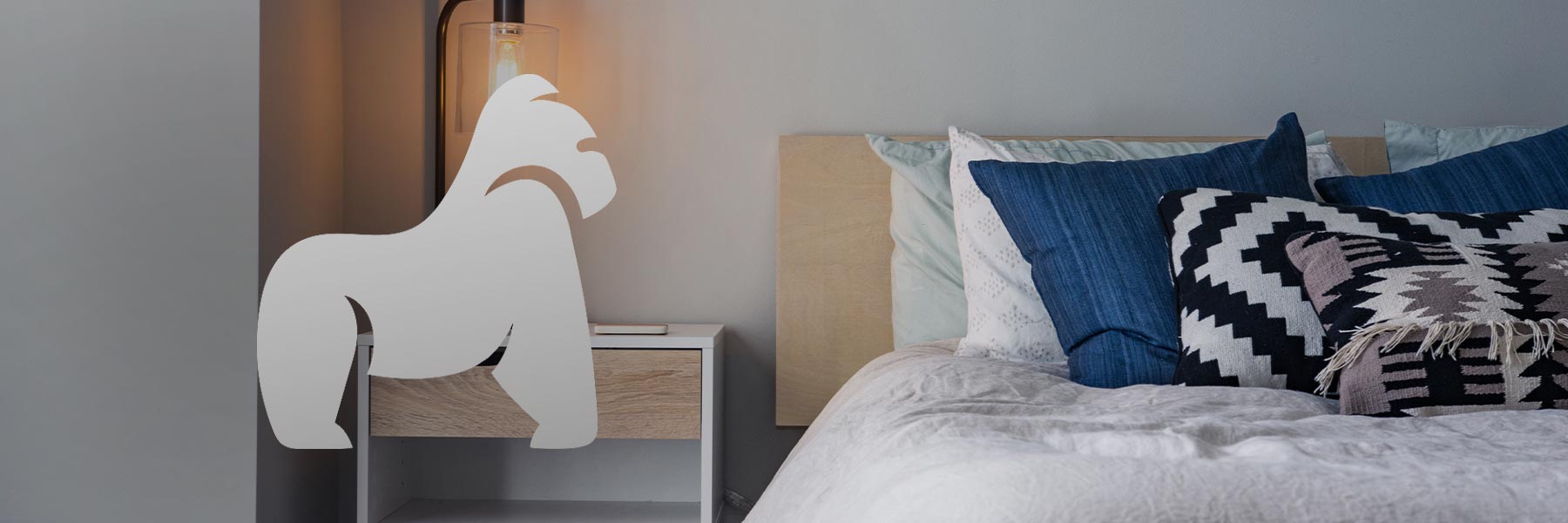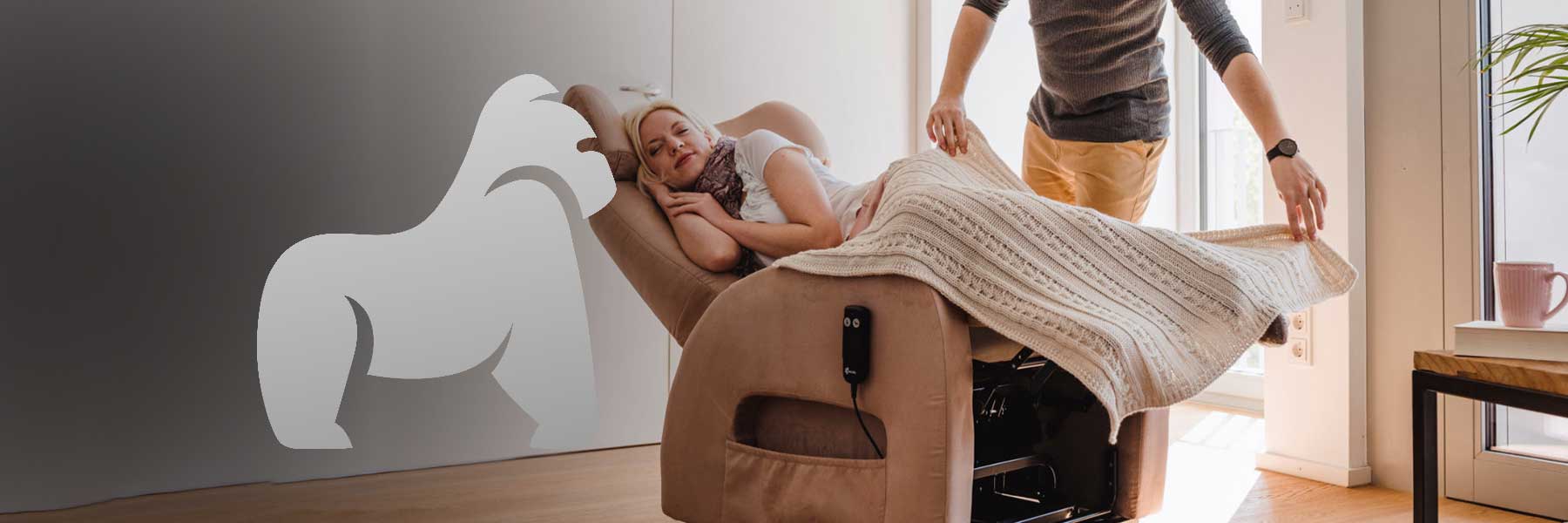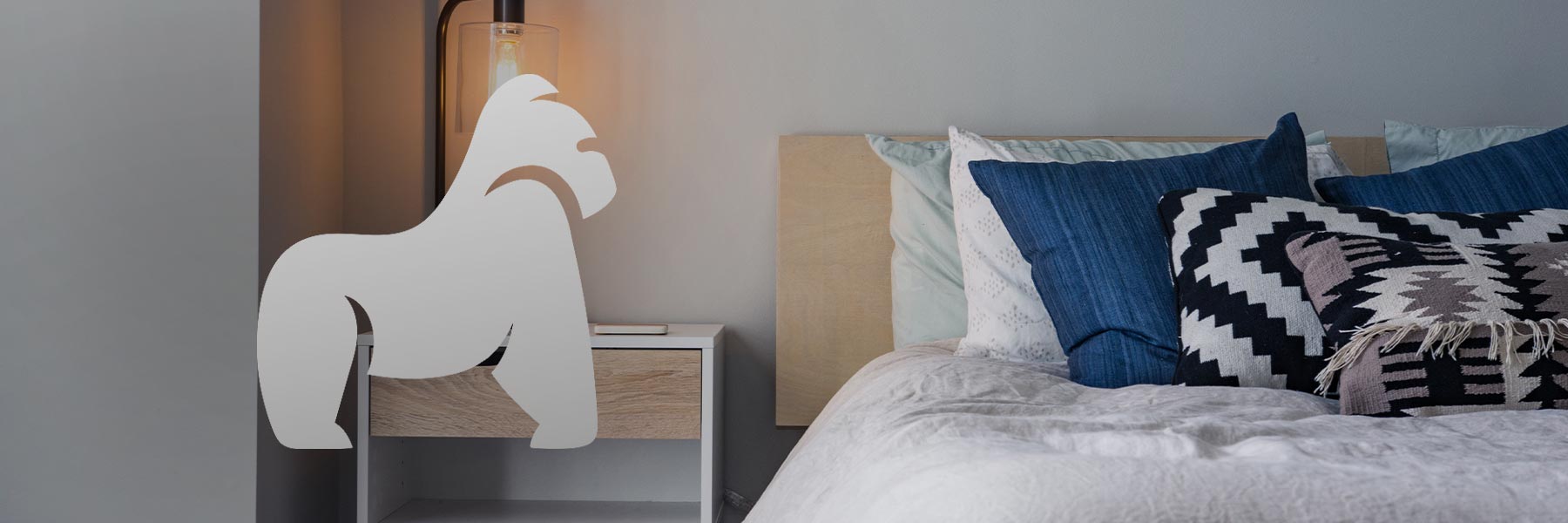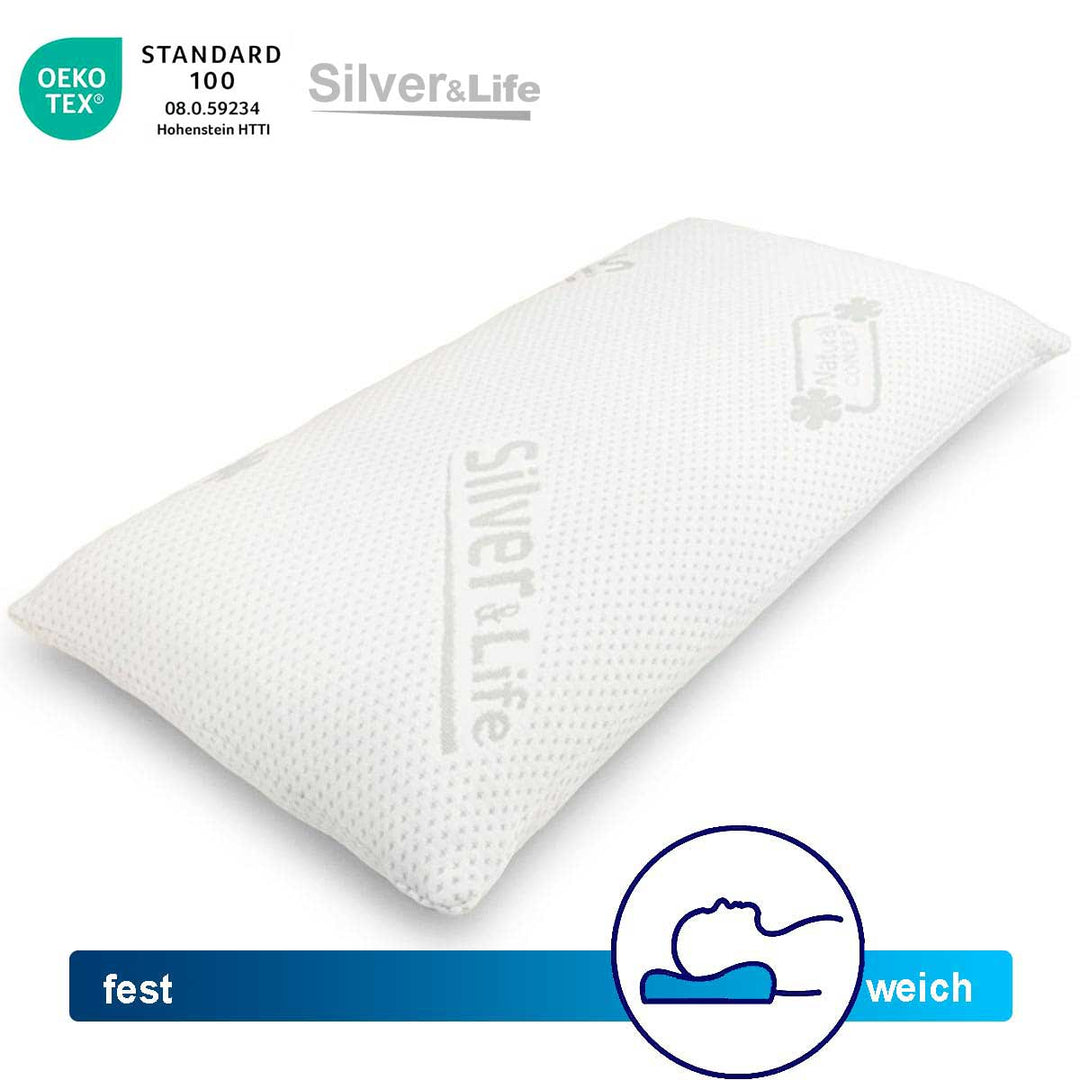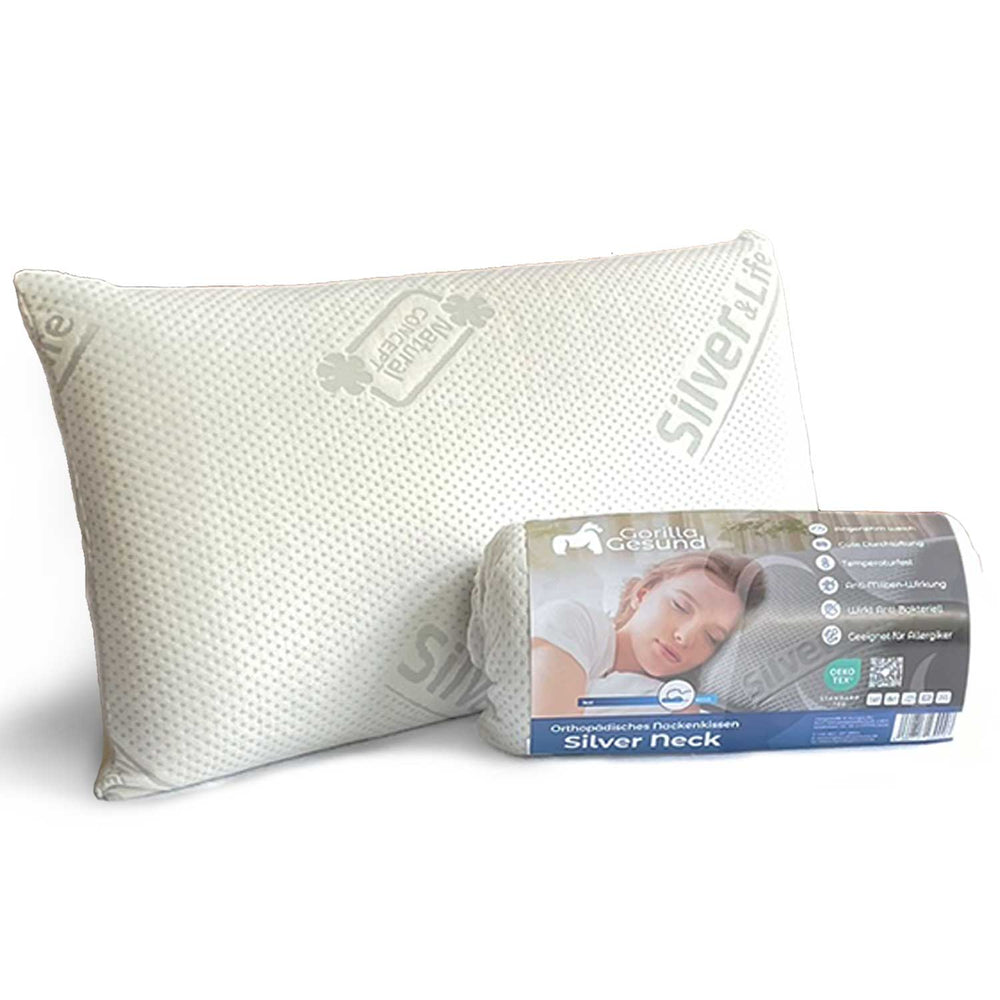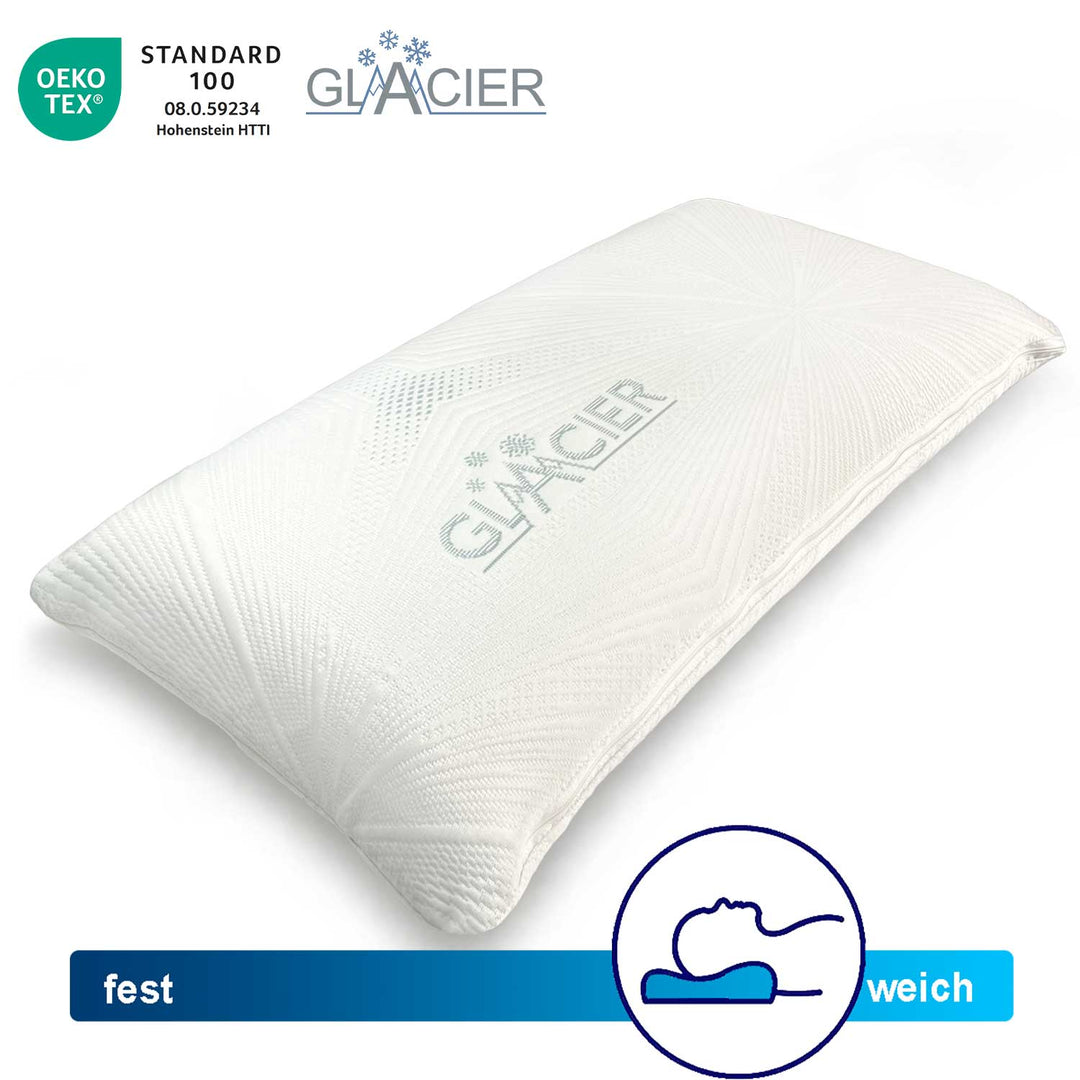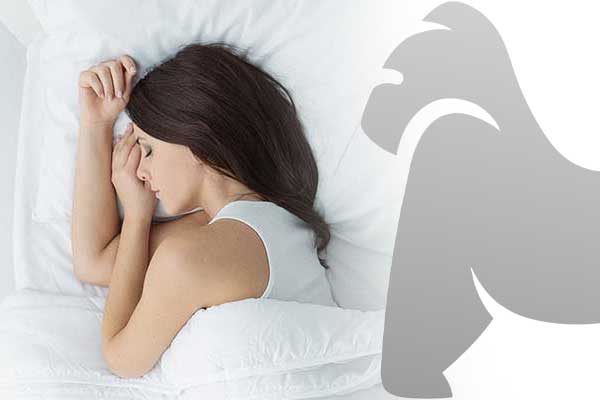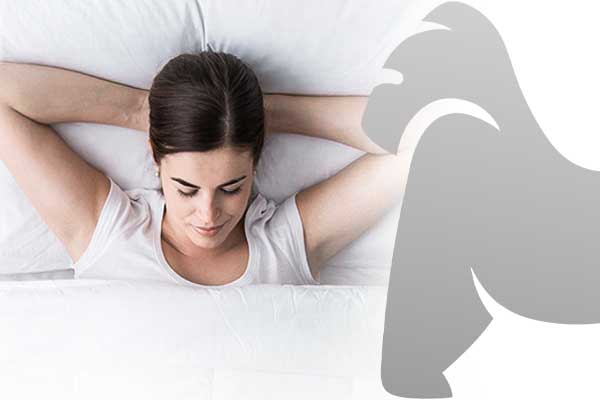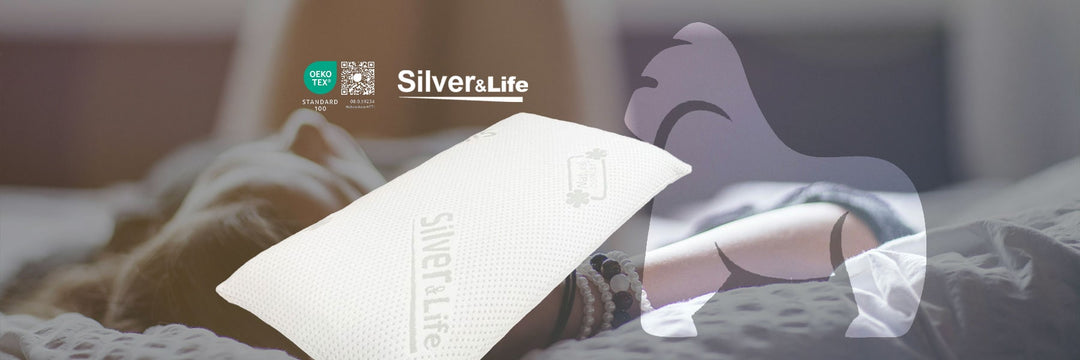
Optimize your sleep for a healthier lifestyle
Good sleep is just as important as regular physical activity and a healthy diet. Research shows that poor sleep has immediate negative effects on hormones, physical performance, and brain function. It can also lead to weight gain and increase the risk of disease in adults and children. In contrast, good sleep can help you eat less, move better, and be healthier overall. In recent decades, both the quality and duration of sleep have decreased. In fact, many people regularly experience poor sleep. If you want to optimize your health or lose weight, a good night's rest is one of the most important measures you can take. Here are 17 proven tips on how to sleep better.
Tip 1: Increase your brightness during the day
Your body has a natural internal clock called the circadian rhythm. This rhythm influences your brain, body, and hormones and helps you stay awake as well as tells your body when it's time to sleep. Natural sunlight or bright light during the day promotes the health of your circadian rhythm. This improves energy during the day as well as the quality and duration of sleep at night. In people with insomnia, the brightness of daylight improved sleep quality and duration. A similar study in older adults showed that 2 hours of bright light during the day increased sleep duration by 2 hours and sleep efficiency by 80%. Although most studies involve people with severe sleep problems, daily light exposure will most likely help you even if you have average sleep. Try to get sunlight exposure daily, or if that is not possible, invest in an artificial light source.
Tip 2: Reduce your blue light exposure in the evening
Exposure to light during the day is beneficial, but nighttime light exposure has the opposite effect. This is again due to its impact on your circadian rhythm, which makes your brain believe it is still daytime. This reduces hormones like melatonin that help you relax and sleep deeply. Blue light, which is emitted in large amounts by electronic devices such as smartphones and computers, is particularly harmful in this regard. There are various popular methods to reduce your nighttime blue light exposure. These include wearing glasses that block blue light, downloading an app like f.lux to block blue light on your laptop or computer, installing an app that blocks blue light on your smartphone (available for iPhones and Android models), and turning off the TV and bright lights at least 2 hours before bedtime.
Tip 3: Avoid caffeinated drinks in the late afternoon and evening
Caffeine has numerous benefits and is consumed by 90% of the population. A single dose can increase concentration, energy, and athletic performance. However, if you consume caffeine in the late afternoon or evening, it stimulates your nervous system and can prevent your body from naturally relaxing before bedtime. One study showed that caffeine consumption up to 6 hours before sleep significantly worsened sleep quality. Caffeine can remain elevated in the blood for 6-8 hours. Therefore, consuming large amounts of coffee after 3-4 pm is not recommended, especially if you are sensitive to caffeine or have trouble sleeping. If you crave a cup of coffee in the late afternoon or evening, it is best to choose decaffeinated coffee.
Tip 4: Avoid long or irregular naps during the day
Short power naps are beneficial, but long or irregular daytime sleeping can affect your nighttime sleep. Sleeping during the day can disrupt your internal clock, making it harder to fall asleep at night. In one study, participants were even sleepier after daytime naps. Another study found that naps of 30 minutes or less can improve brain function during the day, while longer naps can impair sleep quality. However, some studies show that people who regularly nap during the day and sleep well do not have poor sleep quality or disturbed sleep at night. If you regularly nap during the day and sleep well, you don't need to worry. The effects of napping depend on the individual.
Tip 5: Maintain regular sleep and wake times
Your body follows a circadian rhythm aligned with sunrise and sunset. By maintaining regular sleep and wake times, you can improve your sleep quality in the long term. A study found that participants with irregular sleep patterns who went to bed late on weekends reported poor sleep. Further studies have shown that irregular sleep patterns can affect your circadian rhythm and melatonin levels, which signal your brain to sleep. If you have trouble sleeping, try to get used to similar sleep and wake times. After a few weeks, you might not even need an alarm clock.
Tip 6: Take a melatonin supplement
Melatonin is an important sleep hormone that signals your brain when it's time to relax and go to bed. Melatonin supplements are a very popular sleep aid. They are often used to treat insomnia and can help you fall asleep faster. In one study, taking 2 mg of melatonin before bedtime improved sleep quality and next-day energy and helped people fall asleep faster. In another study, half of the participants fell asleep faster and there was a 15% improvement in sleep quality. No withdrawal effects were reported in either study. Melatonin is also useful when traveling and adjusting to a new time zone, as it helps your circadian rhythm adapt. In some countries, you need a prescription for melatonin, while in others it is available over the counter. Take about 1-5 mg of melatonin 30-60 minutes before bedtime. Start with a low dose to check your tolerance and increase slowly as needed. Since melatonin can affect brain chemistry, it is advisable to consult a doctor before use. Also talk to a doctor if you are considering using melatonin as a sleep aid for your child, as long-term use in children is not well studied.
Tip 7: Consider other supplements
There are several supplements that can help with relaxation and assist you in sleeping. These include:
-
Ginkgo biloba: A natural plant with many benefits. It can support sleep, relaxation, and stress reduction. However, the evidence is limited. Take 250 mg 30-60 minutes before bedtime.
-
Glycine: Some studies show that taking 3 grams of glycine can improve sleep quality.
-
Valerian root: Several studies suggest that valerian can help with falling asleep and improving sleep quality. Take 500 mg before bedtime.
-
Magnesium: Magnesium is responsible for over 600 reactions in the body and can help with relaxation and improve sleep quality.
-
L-Theanine: An amino acid that can improve relaxation and sleep. Take 100-200 mg before bedtime.
-
Lavender: Lavender is a powerful plant with many health benefits. It can have a calming and relaxing effect that improves sleep. Take 80-160 mg of lavender containing 25-46% linalool.
Note that you should try these supplements one at a time. Although they are not miracle cures for sleep problems, they can be useful in combination with other natural sleep strategies.
Tip 8: Avoid alcohol
Alcohol consumption in the evening can negatively affect your sleep and hormones. Alcohol can cause or worsen symptoms of sleep apnea, snoring, and disrupted sleep patterns. It also affects the nighttime production of melatonin, which plays a key role in your body’s circadian rhythm. Another study has shown that drinking alcohol in the evening reduces the natural nighttime increases of human growth hormone (HGH), which plays a role in the circadian rhythm and many other important functions.
Tip 9: Create a relaxing bedtime routine
Establishing a bedtime routine can signal to your body that it’s time to wind down and prepare for sleep. Engage in calming activities such as reading a book, taking a warm bath, or relaxation techniques like deep breathing or meditation. Avoid stimulating activities, screens, and bright light before bedtime, as they can affect your relaxation and ability to fall asleep.
Tip 10: Create a sleep-friendly environment
Your sleep environment plays an important role in the quality of your sleep. Make sure your bedroom is cool, quiet, and dark. Use curtains, blinds, or a sleep mask to block out unwanted light. Use earplugs, a sound machine, or a fan to mask disruptive noises. Invest in a comfortable mattress, pillows, and bedding that support your sleeping position and preferences.
Tip 11: Exercise regularly
Regular physical activity can improve sleep quality. Aim for at least 30 minutes of moderate exercise most days of the week. However, avoid exercising immediately before bedtime, as it can increase alertness and make it harder to fall asleep. Find a workout routine that suits you and incorporate it into your daily schedule.
Tip 12: Stress management
Stress and anxiety can significantly affect your sleep. Develop effective stress management techniques such as mindfulness exercises, journaling, or relaxation exercises. If you find it difficult to manage stress on your own, consider seeking support from a therapist or counselor who can provide guidance and coping strategies.
Tip 13: Limit fluid intake before bedtime
Although it is important to stay adequately hydrated, drinking too much fluid shortly before bedtime can lead to nighttime bathroom trips and disrupt sleep. Limit fluid intake in the evening, especially caffeinated and alcoholic beverages, which can also affect sleep quality. However, do not neglect hydration during the day to maintain overall health.
Tip 14: Avoid heavy meals before bedtime
Eating a large, heavy meal shortly before bedtime can cause discomfort and disrupt sleep. It is best to have your last meal or snack at least a few hours before going to bed. If you are hungry before bedtime, choose a light, nutritious snack that does not burden your digestive system.
Tip 15: Create a comfortable sleep environment
Invest in a supportive mattress and pillows that meet your comfort needs. A good mattress and suitable pillows can significantly improve sleep quality. Choose a mattress and pillows that provide adequate support for your body and promote proper spinal alignment. Also consider factors such as mattress firmness, pillow height, and material preferences to optimize your sleep environment.
Tip 16: Limit daytime napping
Short power naps can boost productivity and energy levels, but excessive or long naps during the day can disrupt nighttime sleep. If you have difficulty falling asleep or staying asleep at night, avoid napping during the day or limit it to no more than 20-30 minutes early in the day.
Tip 17: Seek professional help if needed
If you continue to experience sleep problems despite implementing these tips, it may be helpful to consult a medical professional or sleep specialist. They can assess your sleep patterns, identify possible underlying sleep disorders, and provide you with personalized recommendations or treatments to improve your sleep quality.
Summary
By following these 17 proven tips, you can improve your sleep quality and enjoy a better night's rest. Increase your brightness during the day, reduce blue light exposure in the evening, avoid caffeinated drinks in the late afternoon and evening, stick to regular sleep and wake times, take melatonin supplements if needed, and consider other relaxing supplements. Avoid alcohol before bedtime. These measures can provide your body and mind the rest they need to stay healthy and energized. Invest in your sleep for a healthier lifestyle with Gorilla Gesund.





